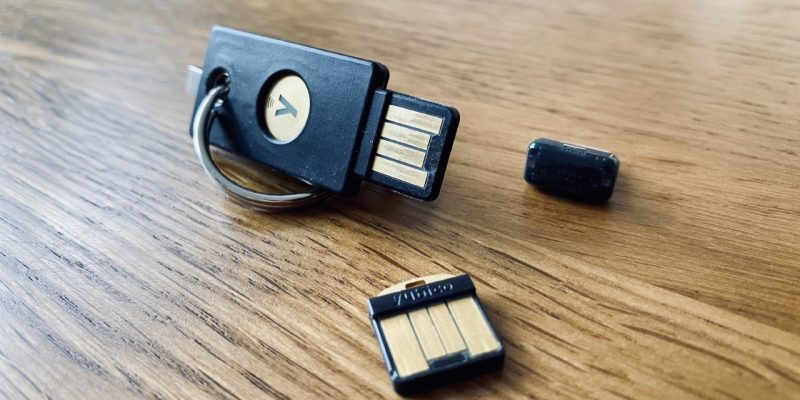YubiKey Try Creating a PIN That’s More Complex: Understanding and Fixing the Issue

YubiKey is one of the most trusted hardware security keys used for two-factor authentication, passwordless login, and encryption. However, many users encounter a common issue during setup — the message “YubiKey try creating a PIN that’s more complex.”
This warning appears when the PIN you’ve chosen doesn’t meet the complexity requirements for your YubiKey device. Understanding this message is key to keeping your security strong and your authentication setup smooth. In this guide, we’ll explain what the message means, how to fix it, and how to create a secure PIN that meets all YubiKey standards.
What Does “YubiKey Try Creating a PIN That’s More Complex” Mean?
The error “YubiKey try creating a PIN that’s more complex” appears when your chosen PIN doesn’t meet YubiKey’s minimum complexity rules.
Depending on the model and configuration (PIV, FIDO2, or OpenPGP), YubiKey enforces certain criteria for PIN creation. These rules prevent weak or easily guessable PINs, ensuring stronger hardware-level security.
Common triggers for this message include:
- Your PIN is too short.
- It uses only simple digits like “111111” or “123456.”
- It lacks variation in characters (letters, numbers, symbols).
- You’ve reused an old PIN that fails new complexity rules.
Essentially, this message means your PIN is not strong enough to meet YubiKey’s protection standards — and it’s prompting you to choose a better one.
Why YubiKey Requires Complex PINs
YubiKey’s strength lies in its hardware-based encryption, but even the strongest hardware is only as secure as its PIN. A weak PIN can allow unauthorized access if your device falls into the wrong hands.
Here’s why YubiKey insists on PIN complexity:
- To prevent brute-force attacks: Complex PINs make it exponentially harder for hackers to guess.
- To meet compliance standards: Many enterprise systems require PINs that meet specific security guidelines (FIPS, PIV, etc.).
- To maintain hardware integrity: Weak PINs can expose cryptographic keys and compromise multi-factor authentication.
The “YubiKey try creating a PIN that’s more complex” prompt acts as a safeguard against human error, ensuring you follow best security practices.
Understanding PIN Complexity Requirements
YubiKey’s PIN rules vary slightly depending on which protocol you’re setting up — FIDO2, PIV, or OpenPGP.
However, general complexity standards include:
- Minimum 6 characters (some configurations require 8).
- Use of both numbers and letters.
- Avoiding sequential or repeating numbers.
- No easily guessed patterns (e.g., “123456,” “abcdef”).
- Optional support for special characters like !@#.
If your PIN doesn’t meet these requirements, YubiKey will reject it and display the message “YubiKey try creating a PIN that’s more complex.”
How to Fix the YubiKey PIN Complexity Error
When you see “YubiKey try creating a PIN that’s more complex,” don’t panic — it’s easy to resolve. Follow these steps to create a compliant, secure PIN:
Step 1: Check the Requirements
Identify the specific application you’re configuring (PIV Manager, YubiKey Manager, or a web FIDO2 registration). Each has its own minimum rules for PIN length and complexity.
Step 2: Choose a Longer PIN
If your PIN was 4–5 digits, extend it to 6–8 characters. The longer the PIN, the more secure it is.
Step 3: Mix Character Types
Combine numbers and letters (and symbols if allowed). Example:
A3b7x9 or N4p!2q8
Step 4: Avoid Simple Patterns
Don’t use sequences, birth dates, or repeating numbers — YubiKey will detect and reject them.
Step 5: Use YubiKey Manager
Launch YubiKey Manager → Select your YubiKey → Open “Applications” → Choose PIV or FIDO2 → Click “Change PIN” → Enter your new complex PIN.
Step 6: Confirm and Save
Once accepted, test your new PIN by reconnecting your YubiKey and verifying authentication success.
By following these steps, you’ll eliminate the “YubiKey try creating a PIN that’s more complex” message and ensure your device meets modern security standards.
Examples of Strong YubiKey PINs
To avoid the dreaded “YubiKey try creating a PIN that’s more complex” message, here are examples of PINs that meet best-practice standards:
- D9m4L2p8
- S3cur3!1
- N7xT2vQ4
- H@rDw4re8
These combinations mix uppercase, lowercase, and numbers, with optional symbols for added complexity.
Avoid weak examples like:
- 123456
- abcdef
- password
- 111111
The difference between these examples is what keeps your YubiKey — and your identity — protected.
Common Mistakes When Setting a YubiKey PIN
If you continue seeing “YubiKey try creating a PIN that’s more complex,” you might be making one of these common mistakes:
- Using only numbers: While numeric-only PINs can work, they often fail complexity checks.
- Too short: The PIN must be at least six characters — some YubiKeys require eight.
- Using personal data: Dates, names, or phone numbers are easily guessed.
- Reusing old PINs: YubiKey may block reused or compromised combinations.
- Caps lock confusion: PINs are case-sensitive — make sure you’re entering them exactly as intended.
Correcting these small mistakes ensures a smooth setup process.
How to Reset Your YubiKey PIN
If you can’t remember your old PIN or have locked your YubiKey after multiple failed attempts, resetting may be necessary.
Here’s how to safely reset it:
- Open YubiKey Manager.
- Navigate to Applications → PIV or FIDO2 → Reset.
- Follow on-screen prompts to confirm the reset.
- After reset, create a new, stronger PIN to avoid the “YubiKey try creating a PIN that’s more complex” message.
Important: Resetting erases all stored credentials, so back up recovery methods before proceeding.
Why You Should Use a Passphrase Instead of a Simple PIN
Modern YubiKey models allow you to use passphrases instead of short PINs. A passphrase, such as “C@tRunsFast9,” provides much higher entropy — meaning it’s significantly harder to guess or brute-force.
While longer PINs might seem inconvenient, they are vital for robust protection. The “YubiKey try creating a PIN that’s more complex” message reminds users to move beyond weak numeric PINs and adopt stronger passphrase-style codes that comply with security standards.
Balancing Security and Usability
When creating your PIN, the goal is to make it secure but memorable. You don’t want to write it down or forget it.
To balance both:
- Use a mnemonic (e.g., MyDogB8s! = “My Dog Bites!”).
- Avoid dictionary words, but use readable patterns.
- Combine letters and numbers meaningfully.
- Test your PIN before finalizing it.
YubiKey’s prompt “try creating a PIN that’s more complex” isn’t a roadblock — it’s guidance toward safer authentication habits.
The Security Impact of a Weak PIN
Ignoring YubiKey’s warning about PIN complexity can leave your data vulnerable. A simple 6-digit numeric PIN has only one million combinations — easy for a brute-force tool.
In contrast, a mixed 8-character PIN with numbers, letters, and symbols has over 200 trillion possible combinations, making unauthorized access virtually impossible.
So, when your YubiKey says, “try creating a PIN that’s more complex,” it’s not being picky — it’s protecting your digital life.
Tips for Creating and Remembering a Complex PIN
To create a secure yet memorable PIN for your YubiKey:
- Use a phrase-based PIN (e.g., “T1nyH0use!”).
- Substitute letters with numbers (E=3, A=4, O=0).
- Avoid common patterns or reused codes.
- Consider using a password manager to securely store your PIN.
- Periodically update your PIN for ongoing protection.
These habits prevent the “YubiKey try creating a PIN that’s more complex” issue while keeping your credentials safe.
Conclusion
When your YubiKey displays “try creating a PIN that’s more complex,” it’s guiding you toward better protection. By using a PIN with mixed characters, avoiding common patterns, and following Yubico’s recommendations, you strengthen both your device and your digital identity.
Security isn’t about convenience — it’s about confidence. And a complex PIN is your first line of defense in keeping your YubiKey as powerful and secure as it’s designed to be.
FAQs
1. Why does my YubiKey say “try creating a PIN that’s more complex”?
It means your chosen PIN doesn’t meet YubiKey’s complexity rules, usually because it’s too short or too simple.
2. What are the YubiKey PIN requirements?
Most YubiKeys require at least 6–8 characters with a mix of numbers and letters. Avoid repeating or sequential digits.
3. Can I use special characters in my YubiKey PIN?
Yes, depending on your setup. Symbols like !, @, or # add extra complexity and improve security.
4. How do I reset my YubiKey PIN if I forgot it?
Use YubiKey Manager to reset the device under the PIV or FIDO2 application section. Be aware this deletes stored credentials.
5. How can I remember a complex PIN easily?
Use a short phrase or pattern substitution, such as B0bL0vesT3a, or store your PIN securely in a password manager.
Also read: Understanding ShotPump Crypto: How It Works and Why It’s Gaining Attention











